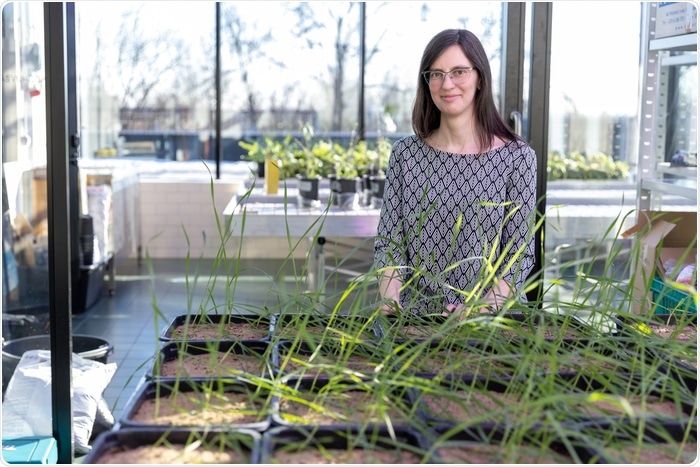Marina Semchenko, Associate Professor of Plant Ecology at the University of Tartu, has been awarded a prominent grant from the European Research Council (ERC) to investigate the impact of land-use change on plant-soil interactions. Soil fertility, drought resilience, and carbon sequestration capability are all affected by evolutionary changes in these interactions.

Marina Semchenko, Associate Professor of Plant Ecology of the University of Tartu. Image Credit: Photo by Andres Tennus.
The world’s ecosystems’ biodiversity is decreasing at an alarming rate. This is why, in the foreseeable future, the United Nations and the European Commission have set biodiversity and landscape restoration as one of their top priorities.
Semchenko’s study endeavor gives critical information for enhancing the repair process’ efficiency. The study will focus on grasslands in various parts of Europe to see how biological changes in plant populations impact soil processes and drought resistance.
While the detrimental effects of grassland fertilizing and shrub invasion on species composition are well documented, little study has been done on genetic alterations within species, which might be essential for species survival in the face of climate change. It is also unclear how land-use-induced alterations in plant populations impact the ecosystem’s overall functioning and drought resistance. In her research endeavor, Semchenko focuses on these concerns.
Microscopic fungi are extremely essential for plants in traditionally maintained grasslands since they aid in the uptake of nutrients from the soil, as well as the retention of nutrients and the binding of carbon in the soil. Plants may quit their symbiotic relationship with fungus if land usage changes.
As a consequence, the soil may act as a sieve, allowing nutrients to readily wash away while carbon is emitted back into the atmosphere during droughts. According to Semchenko, such shifts might be induced by the use of fertilizers common in intensive farming as well as shrub encroachment on abandoned grasslands.
Grasslands of various historical backgrounds will be monitored in four areas across Europe as part of the research project: well enough and overgrown pastures in western Estonia, grasslands of various ages on the Swedish island of land, traditional and fertilized grassland in northern England, and the world’s oldest fertilizer test field in southern England, which has been maintained for more than 160 years.
To monitor evolutionary changes in each observation site, it is important that we know the exact history of land use, and that different management methods have been used in adjacent fields for several decades.”
Marina Semchenko. Associate Professor, Plant Ecology, University of Tartu
According to Semchenko, if evolutionary changes in plant species and their interactions with soil biota have occurred, reintroducing solely visible plant species to the environment may not be adequate. It is also important to think about restoring variety among plant species and soil organisms.
With my research I want to deliver evidence-based knowledge, which will help to make wiser choices in habitat restoration. Better understanding of how plants regulate soil biota could also be useful, for example, in crop breeding and improving soil health.”
Marina Semchenko. Associate Professor, Plant Ecology, University of Tartu